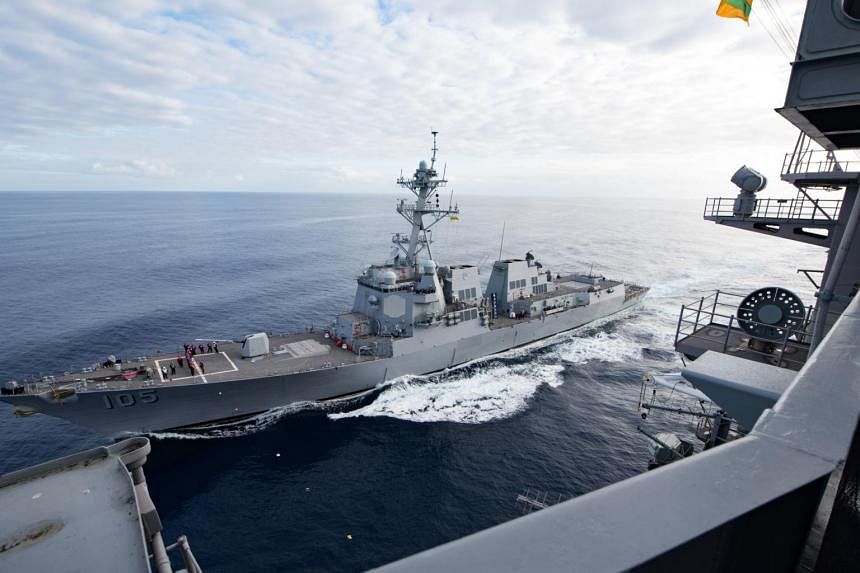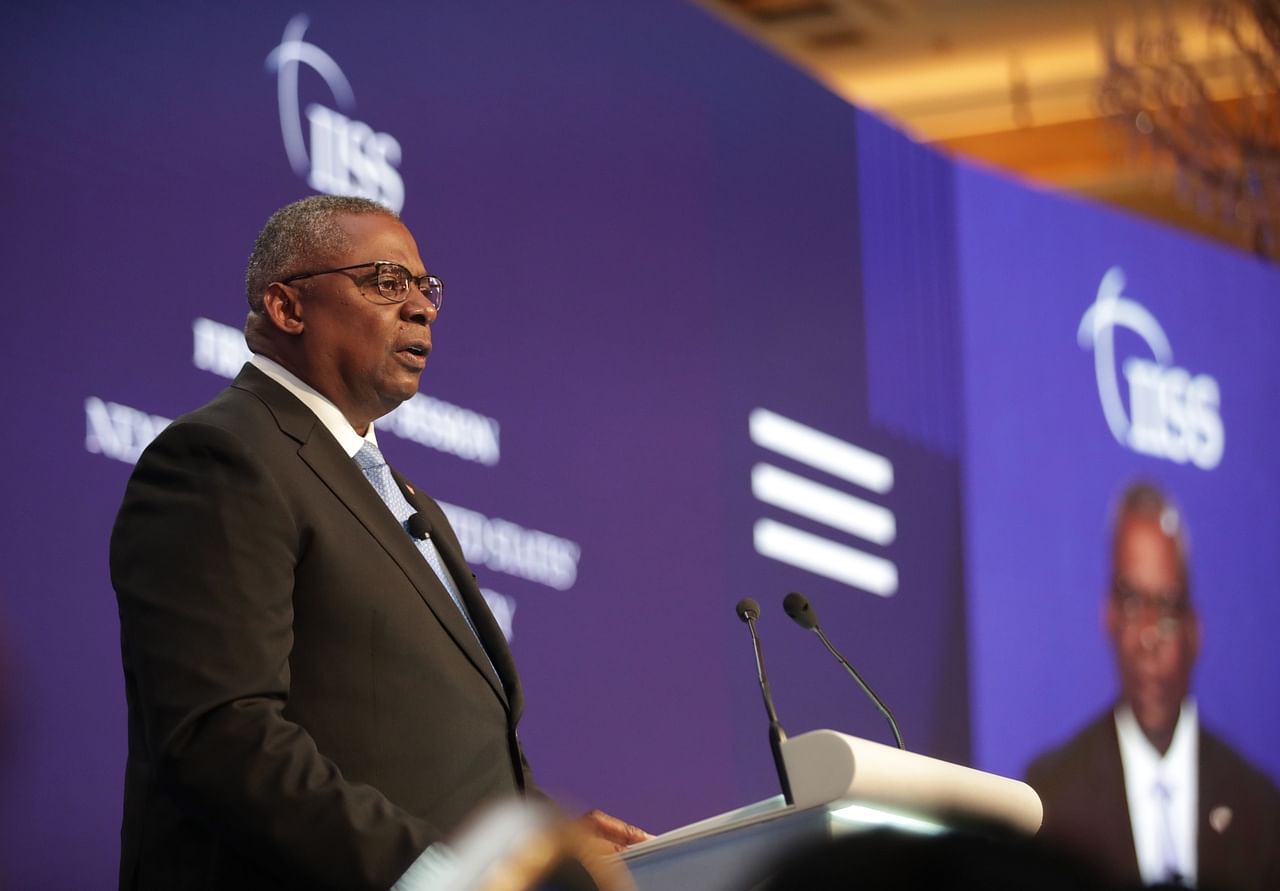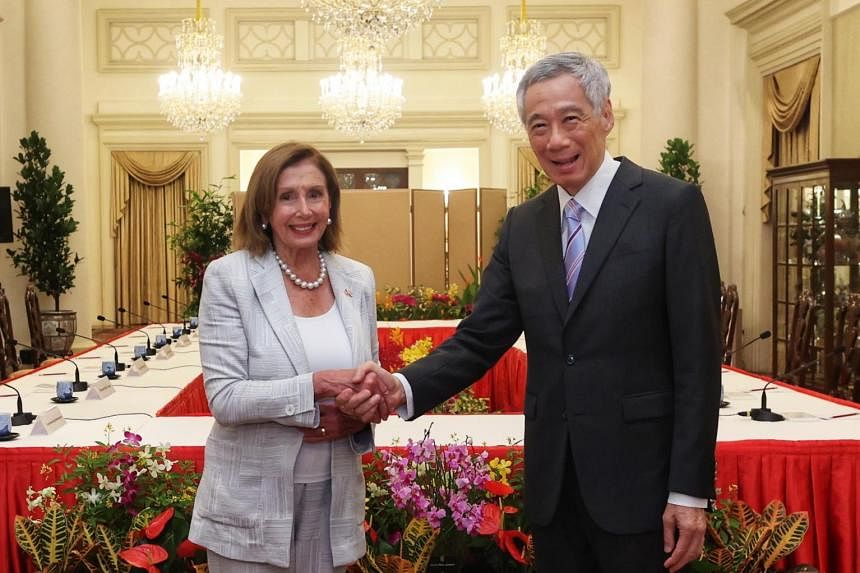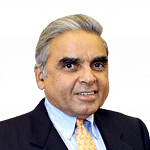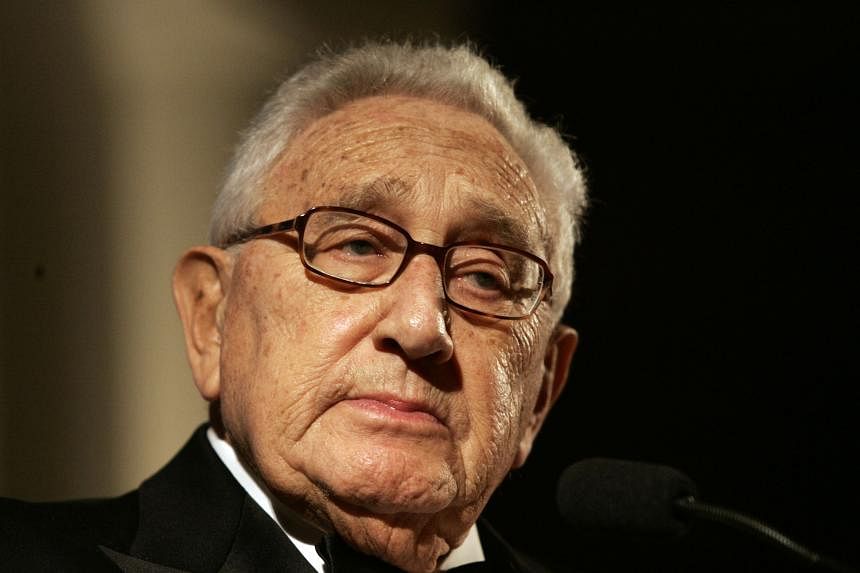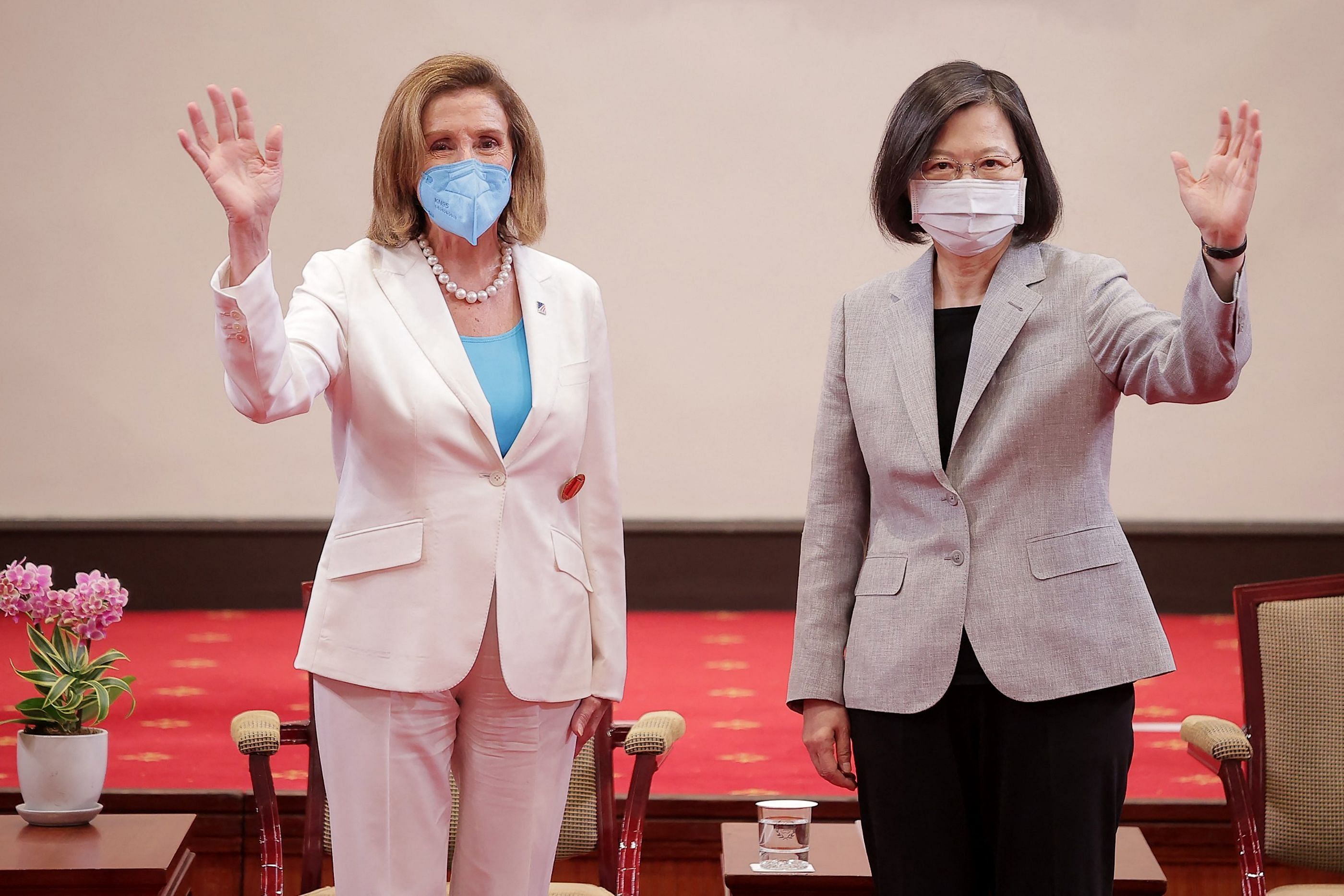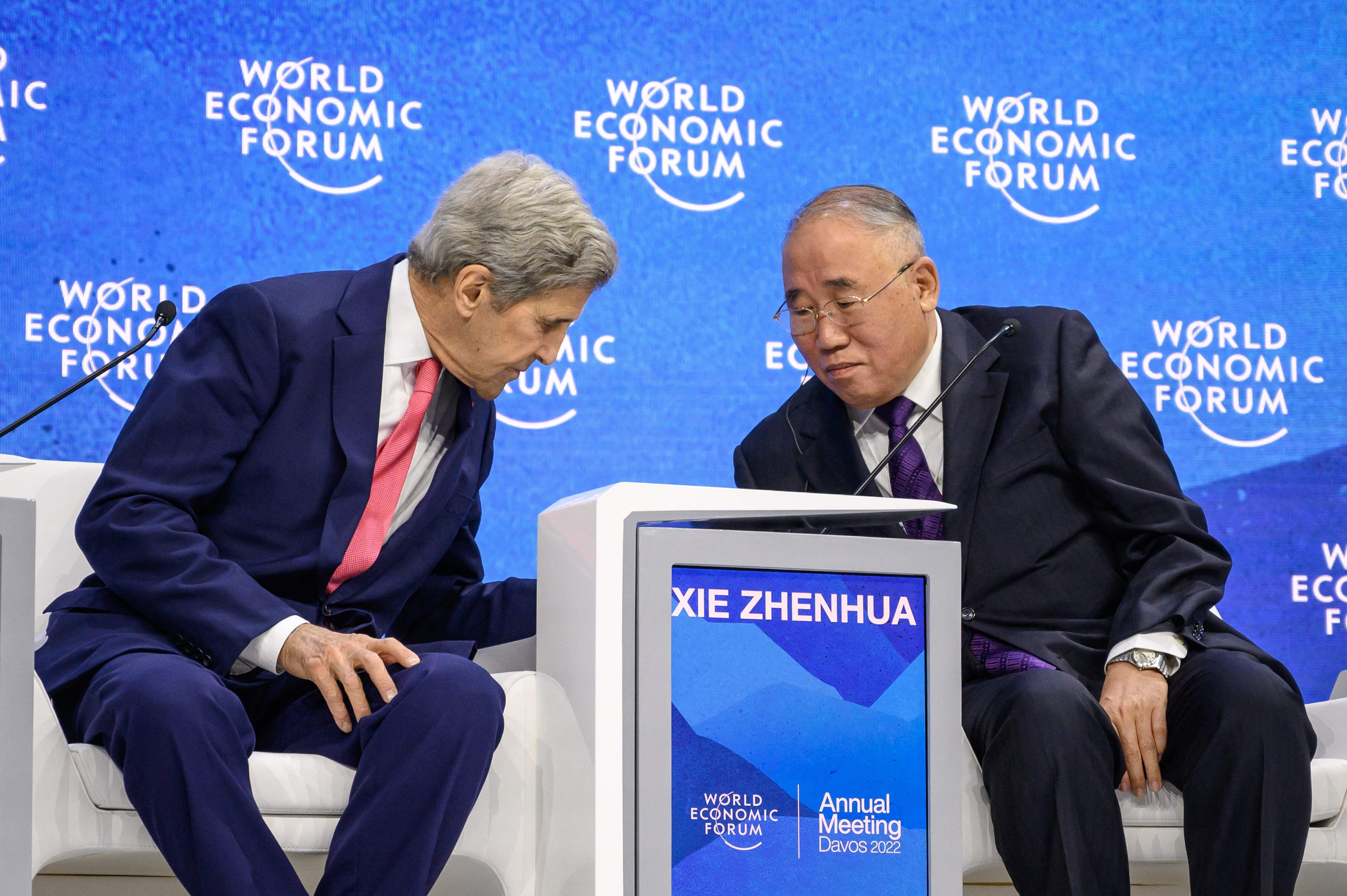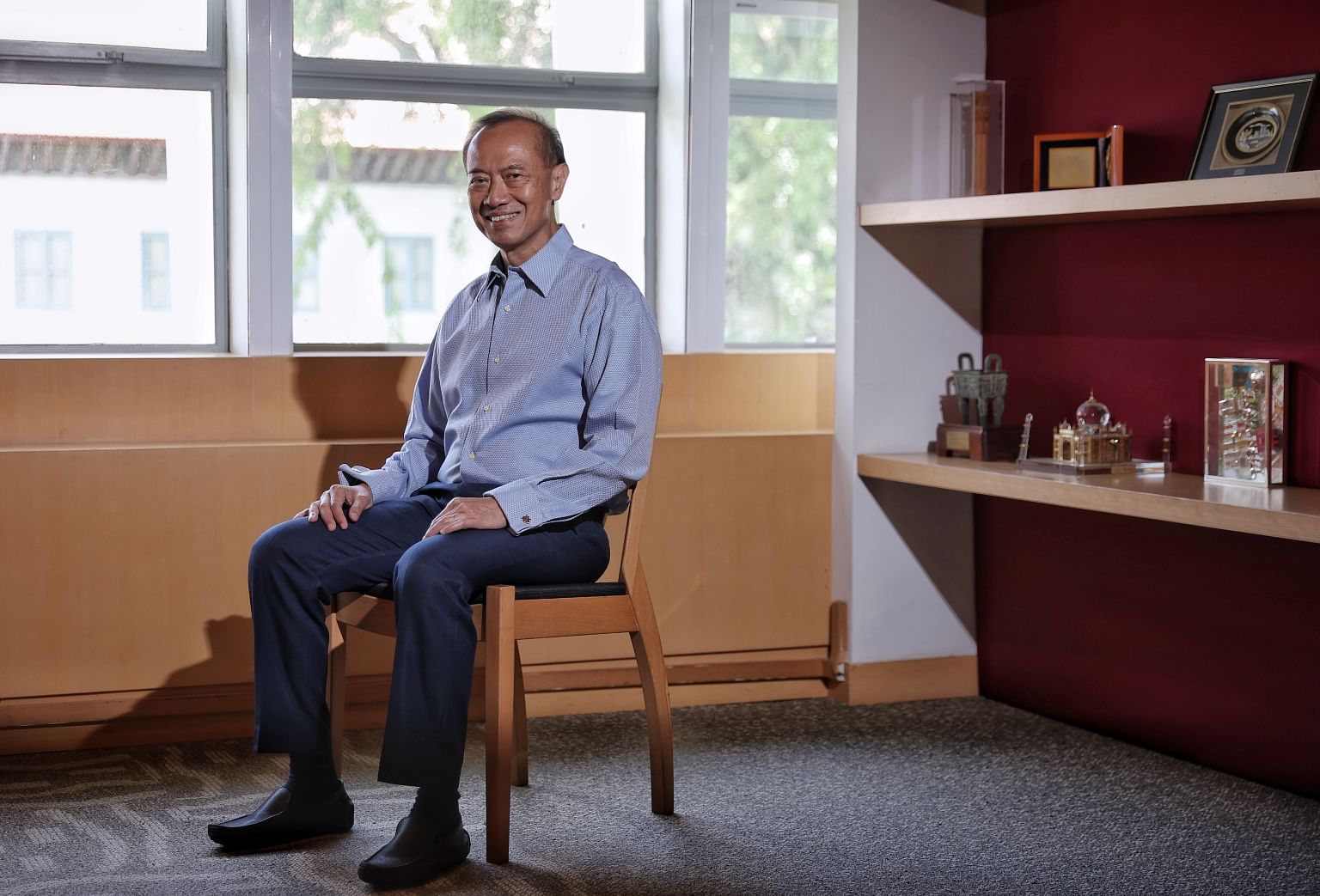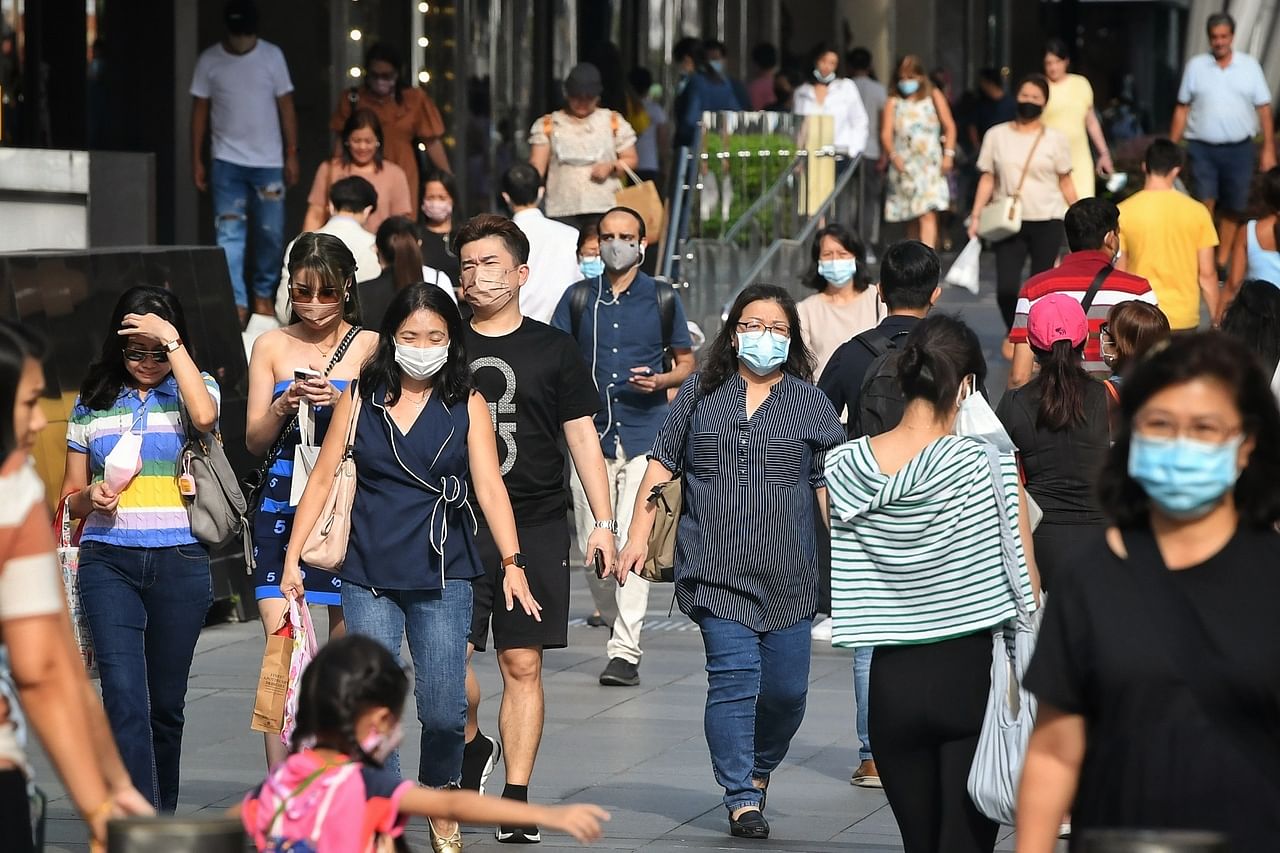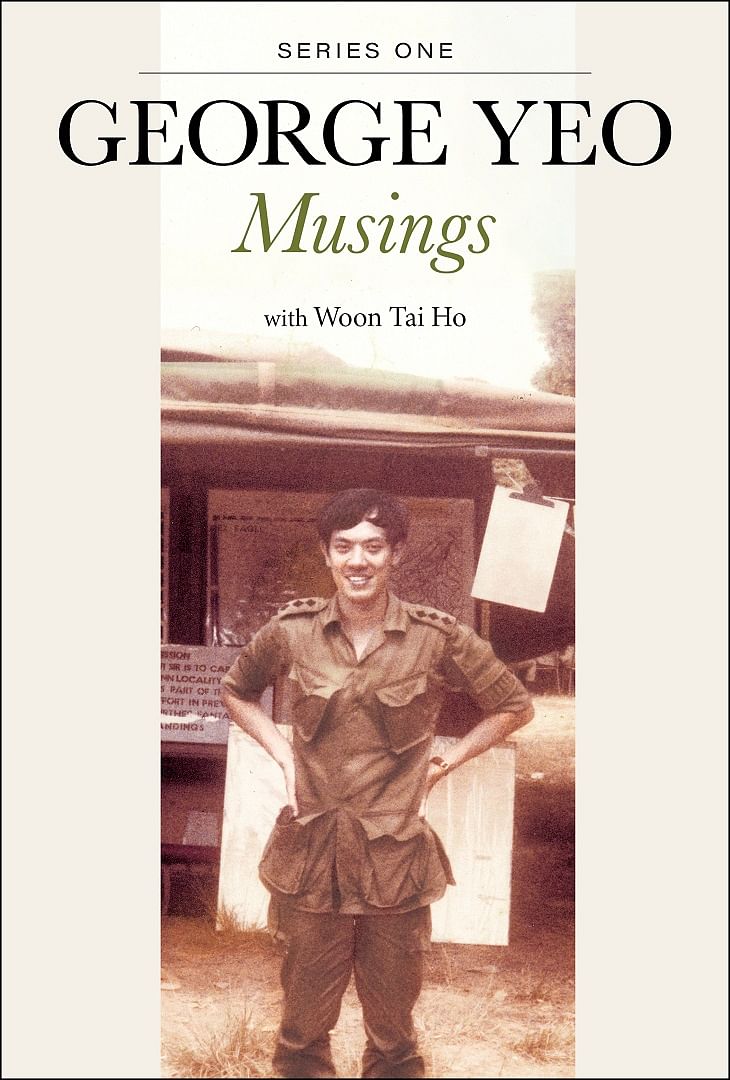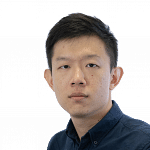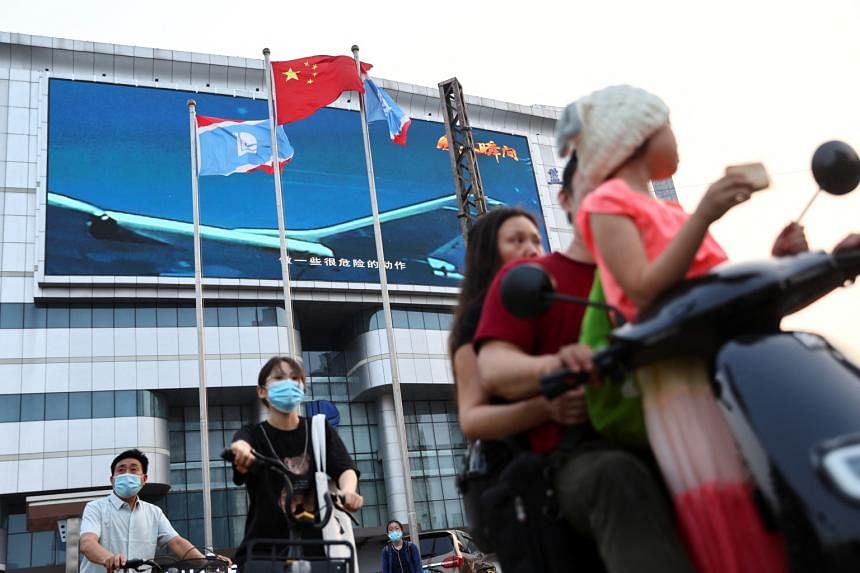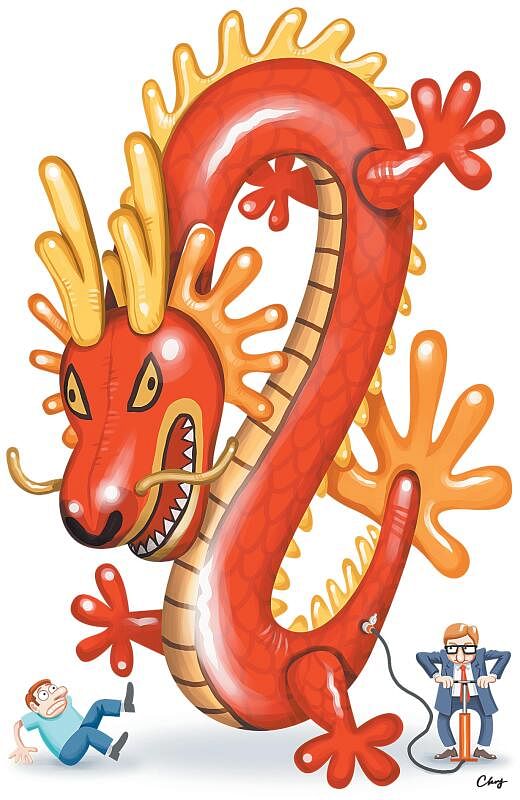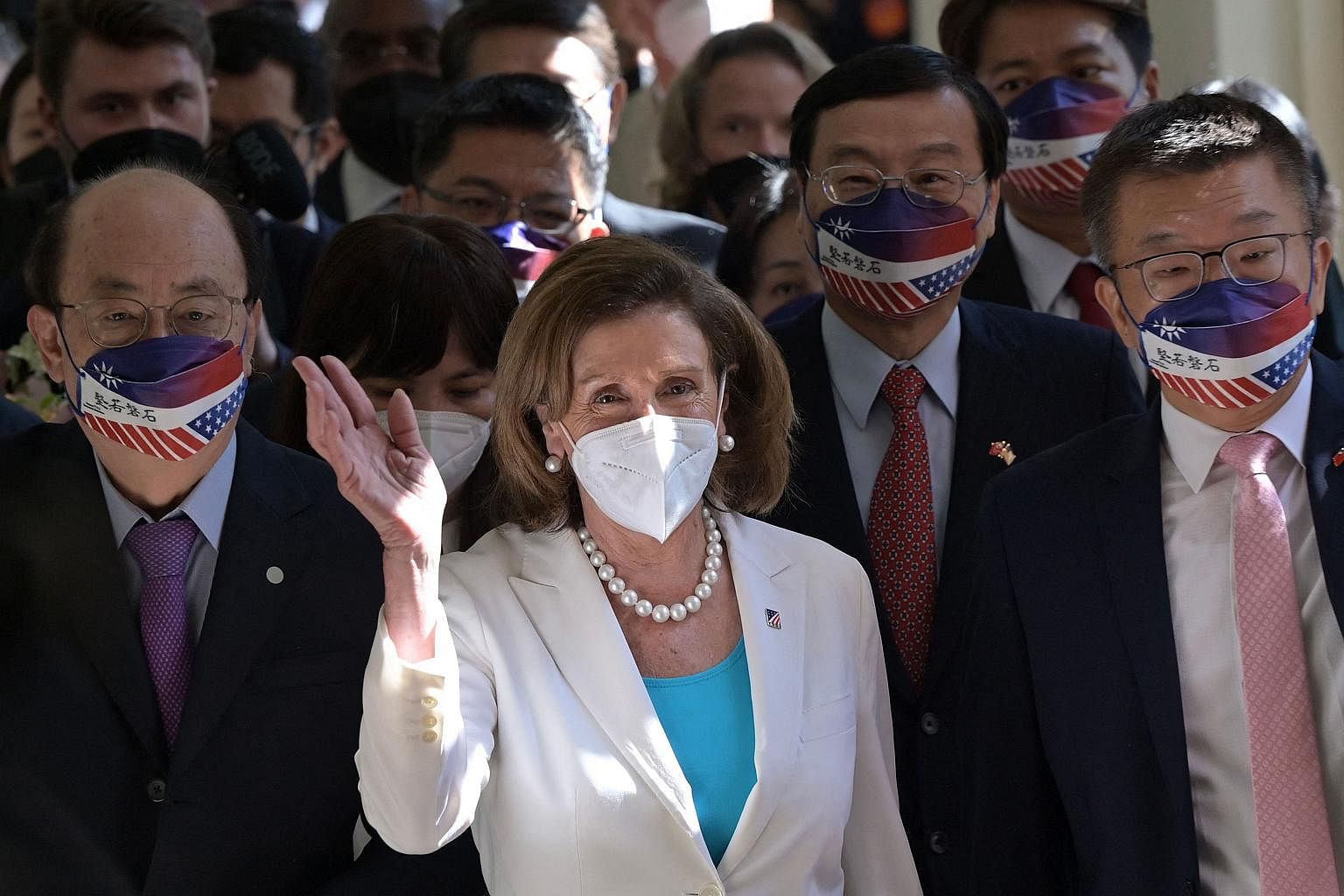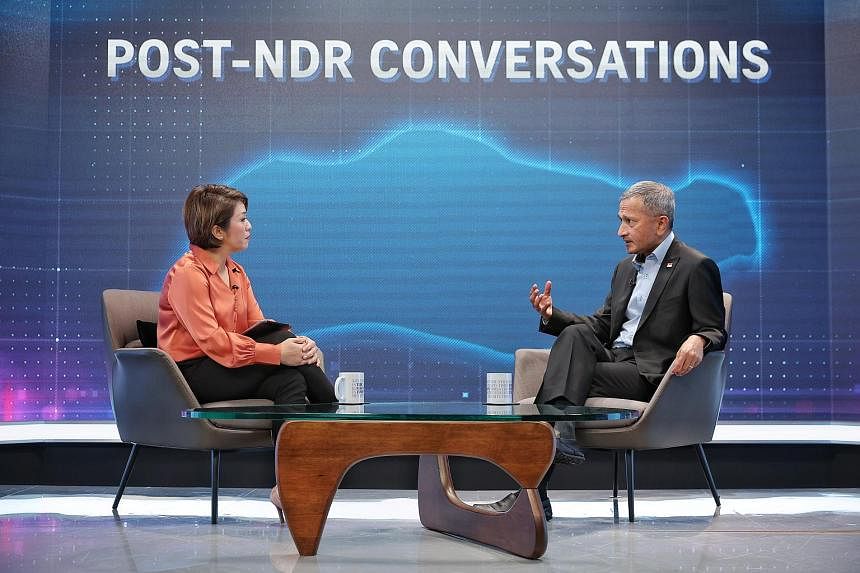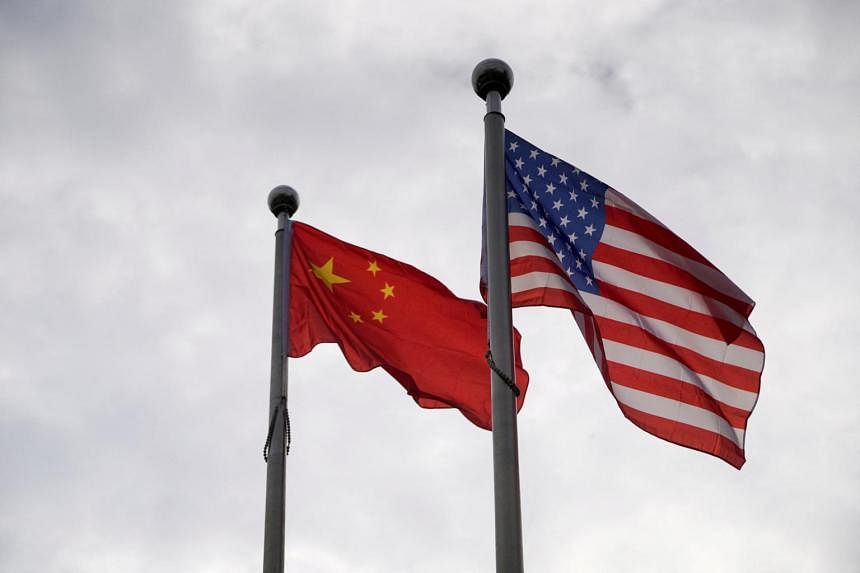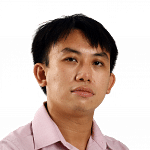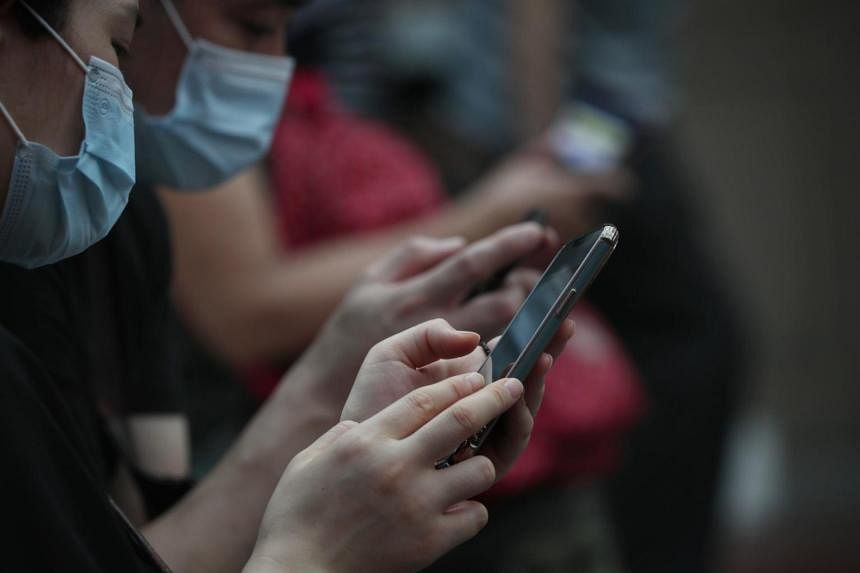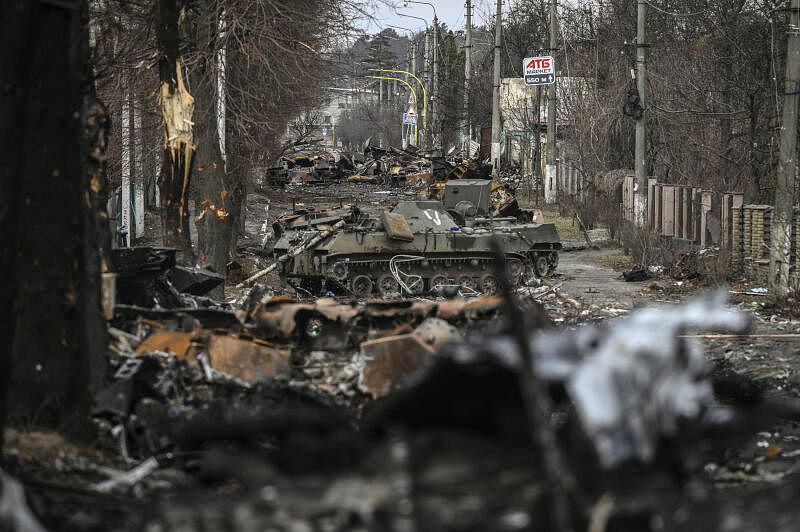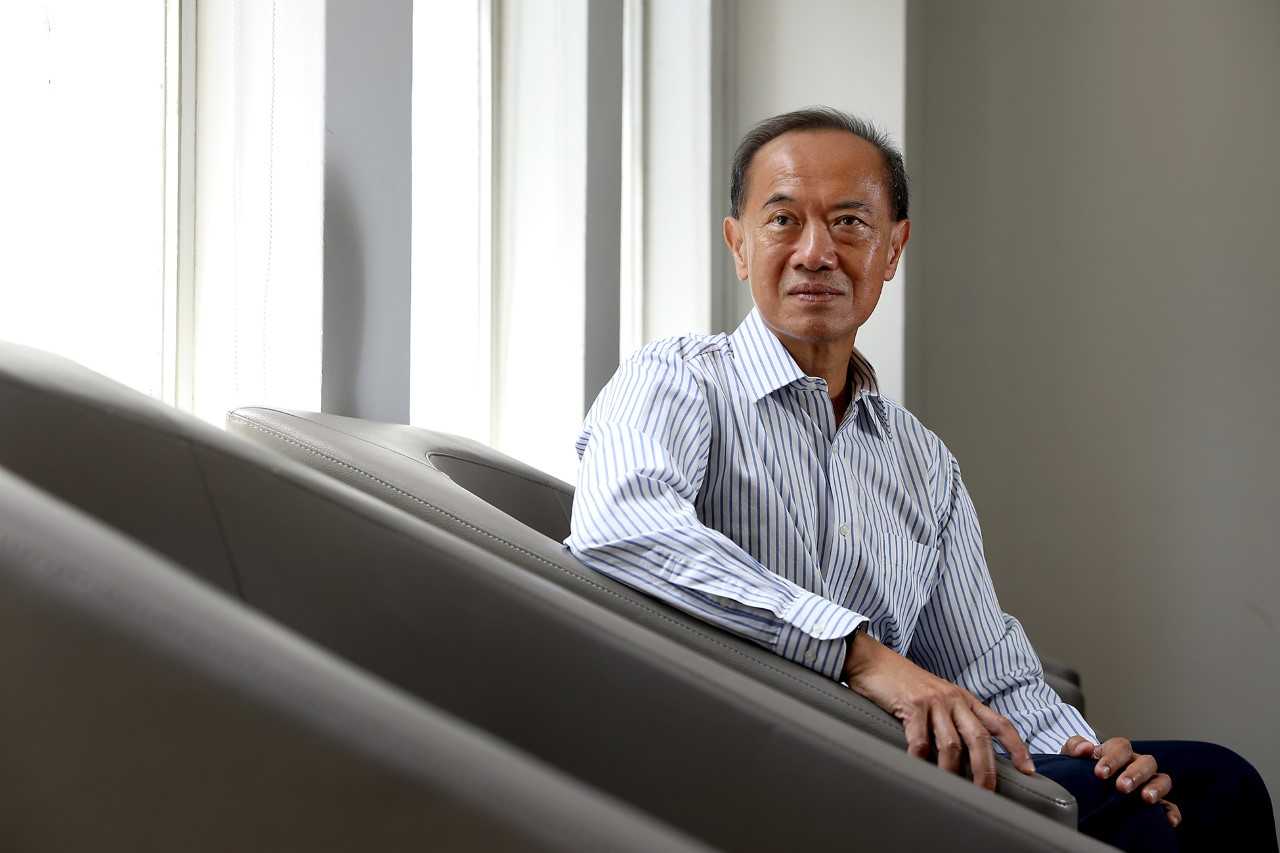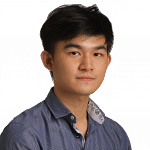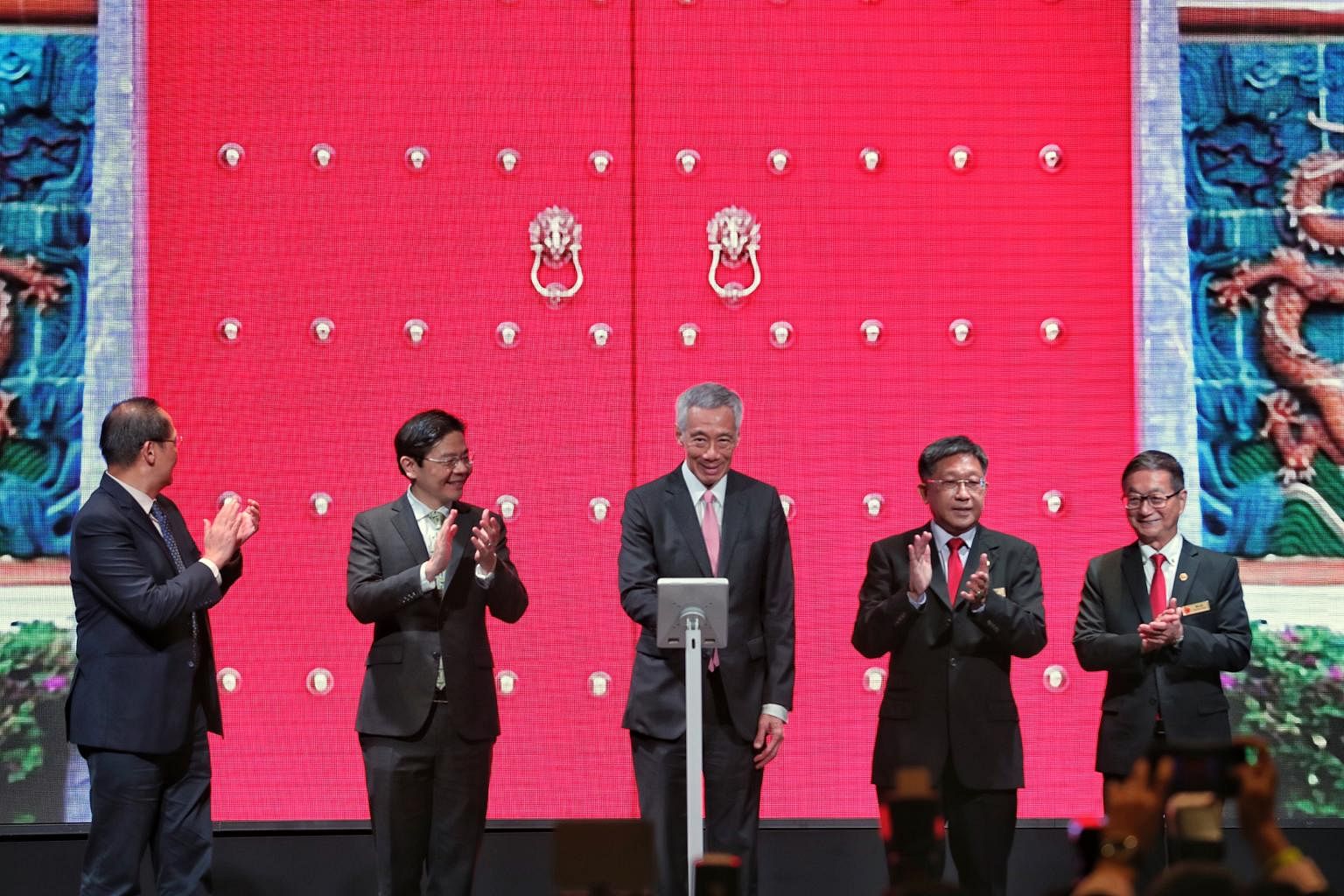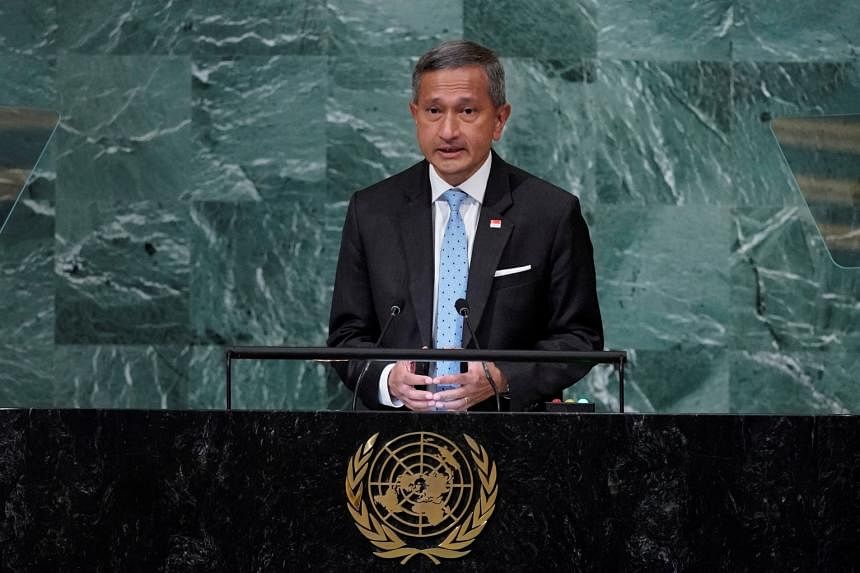George Yeo on the redwood, the giant bush and the banyan tree
Former politician George Yeo talks to Opinion Editor Grace Ho about US-China, India, the Singaporean identity and Chinese schools.
Grace Ho
Opinion Editor
SPH Brightcove Video
Former politician George Yeo shares about his new book, his thoughts on the Singapore identity, the state of US-China relations and confirms he is not running for president in 2023.
AUG 24, 2022
George Yeo is fond of tree analogies.
In a 1991 speech on Singapore, he likened the state to a banyan tree - a large evergreen tree native to Asia - and spoke of the need to prune it so that civic participation could grow under its canopy.
Now, in his new book George Yeo: Musings, which is framed as a series of conversations with veteran media practitioner Woon Tai Ho, the former foreign minister compares China to a redwood tree and India, a giant bush.
I thought this might be a tad simplistic. But he explains in the book that the redwood - one of the largest and tallest trees in the world that can live for thousands of years - looks magnificent from a distance but will stop growing one day. On the other hand, the giant bush is everywhere and hard to make sense of, and continues to grow even if a section is burned or diseased.
Incidentally, redwoods can be found in both the United States and China, which are now at loggerheads.
US lawmakers visited Taiwan barely two weeks after a tour of the island by House Speaker Nancy Pelosi, sparking off
even more military exercises by China around Taiwan.
Such US congressional delegation visits are actually not new. But coming so soon after
the Pelosi trip, the visit naturally assumed greater significance, said Mr Yeo during an hour-long interview on Monday (Aug 22) at the Lee Kuan Yew School of Public Policy, where he is a visiting scholar and the founding patron of its Asia Competitiveness Institute.
He's not certain that the escalation in tensions was entirely deliberate on the US' part, though.
"The US, there are some people who just want to irritate China, want to bring down China's prestige in the world if they can. There are others who may be baiting China to do something silly, then they can respond vigorously. I think in the US, there are a number of players. On the Chinese side, they are quite unified - it's the traditional centralised statecraft of China," he said.
"But the US has always had a division of powers. And sometimes this leads to a certain incoherence in its actions, which China has got to take into account when it does its calculation."
Do both sides risk - to borrow a word used by Deputy Prime Minister Lawrence Wong - "sleepwalking" into a conflict through near-misses and miscalculations?
Yes, if the US supports Taiwan's independence, which China will use all means possible to prevent. But on balance, the theatre of operations favours China, he said.
"For China, (Taiwan is) one, two hundred miles away. For the US, it's thousands of miles away. So it is much harder for the US to sustain a conflict over Taiwan without the use of nuclear weapons."
Former politician George Yeo's new book takes the reader on a winding journey across faith, community, identity, philosophy and world history. ST PHOTO: KEVIN LIM
China's ambitions
He asserts that the US will become less anxious when it realises that China is not expansionist.
China, he writes, protects itself by building walls, and these walls run deep in the Chinese psyche - from the Great Wall of China dating back as far as the 7th century BC, to
its zero-Covid-19 policy today.
I think this is too sanguine a view of China's strategic ambitions, and cite as examples
the Belt and Road Initiative (BRI) and China's actions and rhetoric on the South China Sea. But he disagrees.
He sees the BRI as a natural outcome of the growth of China's economy and its "spillage" beyond China, as was the case for several Chinese dynasties throughout history. The BRI can be beneficial provided it does not entirely converge on China, but leads to a network of transport and communication lines across Eurasia.
If the Japanese, Europeans and Americans feel China has an unfair advantage and wish to add to the network, they should do so and other countries should welcome it, he said. What is uncomfortable is when the US and Europe tell these countries to take sides: "You choose China or you choose me."
What about
the debt problems some countries face when they are unable to make good on their loans? After investing heavily in infrastructure, Sri Lanka, for example, now owes Beijing US$6.5 billion (S$9.1 billion).
He finds the notion implausible that China "somehow wants to lose money, and therefore foreclose their loans and commandeer their assets".
"These are Chinese state-owned enterprises, they have their own key performance indicators. They want to make money, they don't want to lose money," he said.
"Sometimes in their enthusiasm they may make wrong choices, they may be involved in quick decisions, sometimes corrupt on the side - and then they lose money. I believe they regret it."
India
On India, Mr Yeo said governments have to "work with the nature of India", notwithstanding its political complexity.
Mr Yeo was closely involved in the much-debated
India-Singapore Comprehensive Economic Cooperation Agreement (Ceca) and the Nalanda University project.
In 2016 he resigned as chancellor of Nalanda University, a global project to revive an ancient seat of learning, saying that he had been kept out of the loop on an important decision to reconstitute the governing board that makes key decisions for the university.
As for Ceca, it has come under fire from Singaporeans who think it gives Indian job seekers a free pass here, something both Mr Yeo and the Government strenuously deny.
Mr Yeo noted: "If you think that (India and China) should adjust to you, you'll be sorely disappointed because these are big countries. They've got set natures, set habits.
"Singapore in the end is a price-taker, and the more we understand our neighbourhood, the better will we be able to make the little adjustments which make relationships easier to forge."
Identity and a Singaporean core
George Yeo: Musings takes the reader on a winding journey across faith, community, identity, philosophy and world history.
It is also about suffering. Mr Yeo describes his eldest brother Joseph's schizophrenia, resulting in several stays at the old Woodbridge Hospital and which caused great stress to the family.
Then there's his youngest son Frederick, whose battle with leukaemia - his chance of survival was at one point less than 10 per cent - brought all other plans for the family to a "screeching halt". Frederick later recovered following a bone marrow transplant.
When Joseph died in 2008, Mr Yeo - a Catholic who attended mass even amid tightly-scheduled official trips - wrestled with the meaning of his brother's life. He sought comfort in Pope Benedict XVI's words: "Each of us is a thought of God. Each of us is willed. Each of us is loved. Each of us is necessary."
Suffering, he writes in a chapter on his formative years, is part of the human condition.
But while he refers to his own experiences, that observation could also easily apply to his worldview: "Philosophically, I am inclined to the view that it is suffering - pathos - which forges the identity of individuals and of groups."
On the subject of identity, I found this quote from the book interesting: "If we are insecure about our own identity, then we become uncomfortable with the strength of other people's identity."
It intrigued me because Singaporeans should be confident in themselves and proud of their country. But some see themselves as what they're not, rather than who they are: not pro-China, not pro-US, not rich, not happy, and so on.
Which begs the question: More than half a century after independence, are we any better at understanding ourselves as a people?
More than half a century after independence, are we any better at understanding ourselves as a people? ST PHOTO: CHONG JUN LIANG
"If Singapore is defined by what we can't be, then it's not a very attractive Singapore," said Mr Yeo.
Unity, he added, is created not by how much each person has to retreat in order to create a common space - but by how each, by growing his heart and enlarging his mind, can create a greater overlap. One is a positive-sum game, while the other is a zero-sum game.
"The only way we can confront common challenges is if we have higher values... which enable us to interconnect, to find higher purpose, and to cohere. That is what Singapore should be - something larger than what we were before."
Chinese schools
He also argues that the level at which Special Assistance Plan (SAP) schools have maintained Chinese education is not enough to meet Singapore's future needs.
The closure in 1980 of Nanyang University or Nantah, and its subsequent merger into the National University of Singapore, marked the end of the highest-level institution here which used Chinese as its main medium of instruction.
His proposed solution makes my head spin: turn Ngee Ann Polytechnic into a "SAP" poly, and Nanyang Technological University into a "SAP" university.
Can it even work, given that English is Singaporeans' common language? Wouldn't such schools sharpen divisions in society along language and ethnic lines?
His chief concern, he explained, is that Singapore does not have successors to the Nantah generation across all its institutions, including the Chinese media.
Where there is over-dependence on foreigners to make up for a shortfall of local Chinese writers, distortions may arise due to the lack of an indigenous Singapore perspective. There is also the worry that these institutions may be captured by China, he said.
"You can't just depend on foreign talent...there's a danger that we lose our core. I don't see that core being replicated because the current SAP schools that we have, which end at Hwa Chong (Institution), don't provide a sufficient peak."
In the same vein, he suggests having an Islamic college in Singapore to reduce over-reliance on sending madrasah students overseas for their further studies, where they are exposed to different kinds of religious teaching depending on the country or institution.
"We should think about giving them that formative training in Singapore. Then they become Singaporean Islamic religious leaders. In a crisis, they will know how to shape the community because we are multi-ethnic, we are multi-religious," he said.
"If we don't (and) something happens and they’re from different traditions, we may lose coherence."
George Yeo: Musings is sold at major bookstores including Kinokuniya and Popular. PHOTO: WORLD SCIENTIFIC PUBLISHING.
Not running for President
One question which has dogged him is whether he will run for President next year. His answer is "no".
Friends have asked him to reconsider, he said, and he has told them that this is his firm position.
"I was a bit concerned that people might think that I wrote the books for the purpose of preparing the ground for my campaign. So when (Lianhe) Zaobao interviewed me...I said, 'No, please, let’s give a clear definitive answer that I do not wish to run for the presidency'.
"Again, I raised the concern because it’s a very important institutional position and it requires great discipline. You have powers, but you also sometimes have to act under advice, and you cannot lightly speculate on your views about things. There has to be a certain discipline of thought and action.
"Then I looked at myself: do I fit this role? All of us in 2011 remember when I lost the elections, I was not happy, even when I considered it. I asked myself: 'Am I happy?...No, I’m not happy with the prospect. I feel some pressure.'
"You want to say no without explanation, people will say, having presumptions, you know, being arrogant. If I give too long an explanation, people will say, 'Well, maybe you’re not really serious about what you say'."
Underneath the banyan tree
As the meeting draws to a close, I return to his analogy of a banyan tree. Does he think that civic discourse has flourished in the time since he spoke of it in 1991?
Absolutely - Singapore is much more variegated now, and a garden full of flowers has sprung up beneath the tree, he said. But nothing is static, and the relationship between the tree and the vegetation underneath it is a symbiotic one.
"Singapore can't succeed without clear, decisive leadership," he said.
"The world doesn't wait for us. We have to adjust to the world, which means that if there are dangers we must move quickly, and if there are opportunities, strike quickly."
This requires a unity of purpose and decisiveness of action, he added - one which results from continuing conversation and most importantly, a relationship of trust.
On how the next generation of leaders ought to manage this garden, he made two points.
First, Singaporeans must be clear about how the world is changing. For the first time in a long time, the West and the US feel that they are no longer necessarily the top dog, and Asia and China are prepared to look at them "at eye level" as equals.
There will be a protracted struggle between the US and China, one which he calls an "intertidal period" in which one tide is resisting the other, with many countries caught up in the turbulence. "(The West) will not be used to it, but they will have to get to used to it.
"We have to be careful to position ourselves early in the right places, because if we find out too late the course of the current, we don't have time to get into the right position and will be sucked down."
To stay above the waves, Singaporeans must have a good understanding of history and culture. Even as they ebb and flow like the tide in the short run, these tend to be enduring and do not change easily, and can provide clues as to what the future may hold.
MORE ON THIS TOPIC
S'pore should prepare for up to 30 years of US-China rivalry: George Yeo
A Singaporean may not be Chinese, Malay or Indian: Panellist
Second, Singaporeans must be united in order to respond early and effectively to emerging challenges. This internal dimension, he said, requires a continual effort to keep Singaporeans - who are ethnically and religiously diverse - together.
Today, the Chinese redwood is growing more slowly amid challenging economic conditions and a strict Covid-19 policy. The banyan tree, even as it occasionally undergoes pruning, extends a protective shade over its undergrowth which continues to yield a rich variety of flora and fauna.
Mr Yeo's collected musings do not end here; his second and third books are already in the works. Will new flowers spring forth from them? Only time will tell, but the first book is already a garden unto itself.
- George Yeo: Musings is sold at all major bookstores including Books Kinokuniya and Popular, and retails at $74 (hardcover) and $37 (paperback). More information about the book can be found here.


